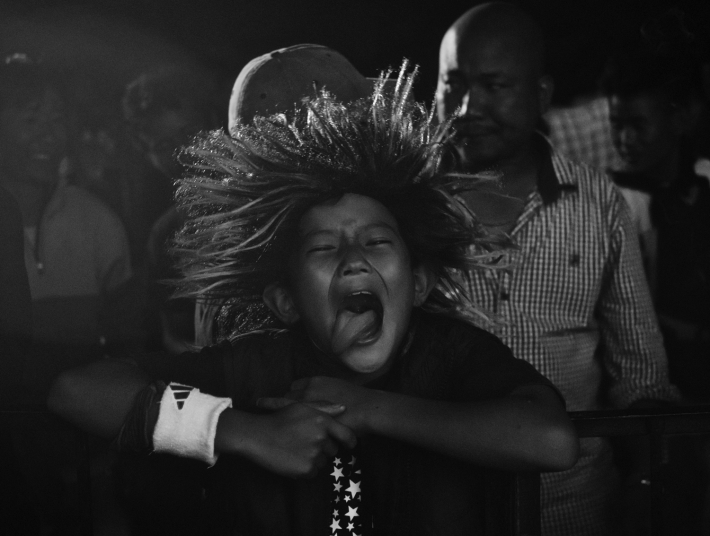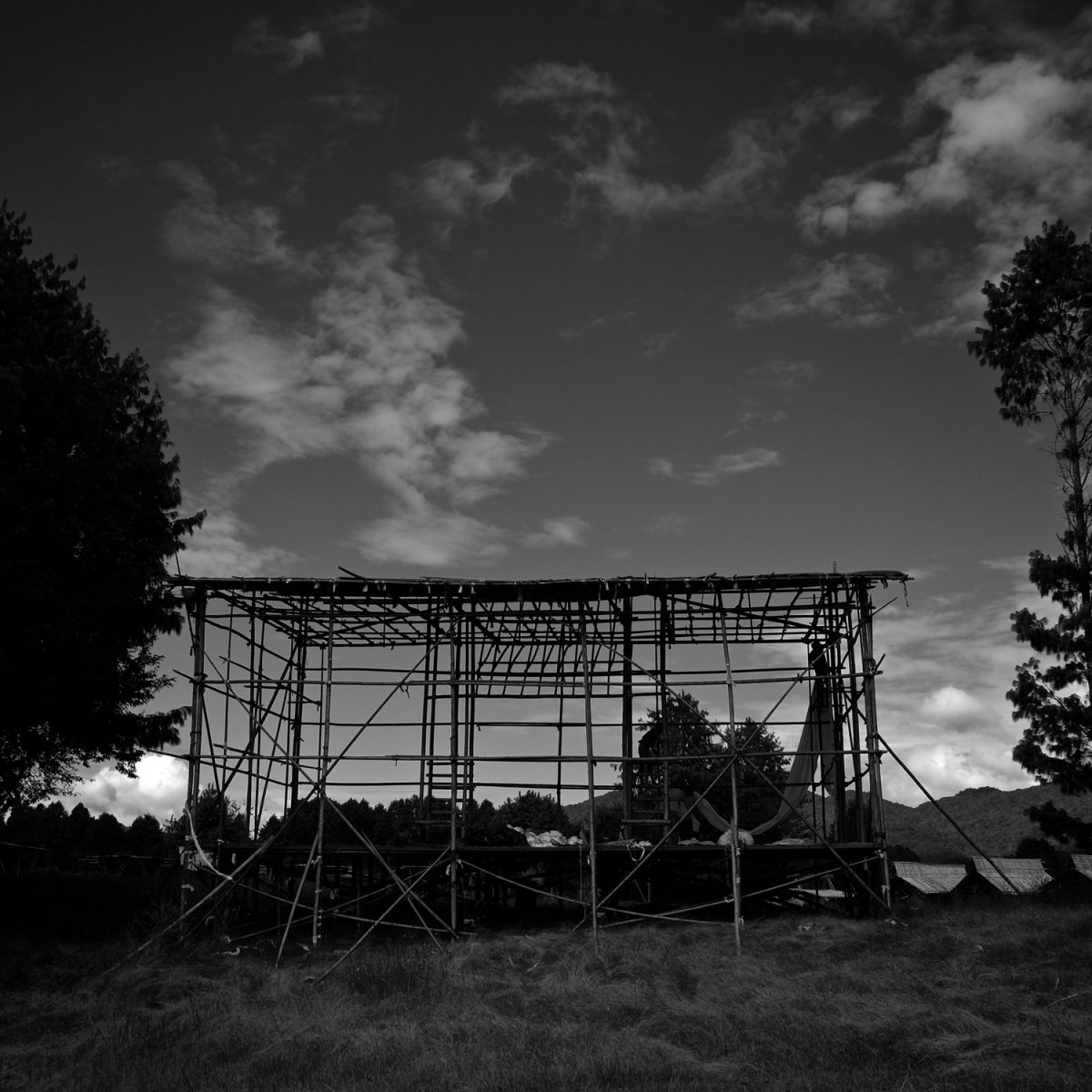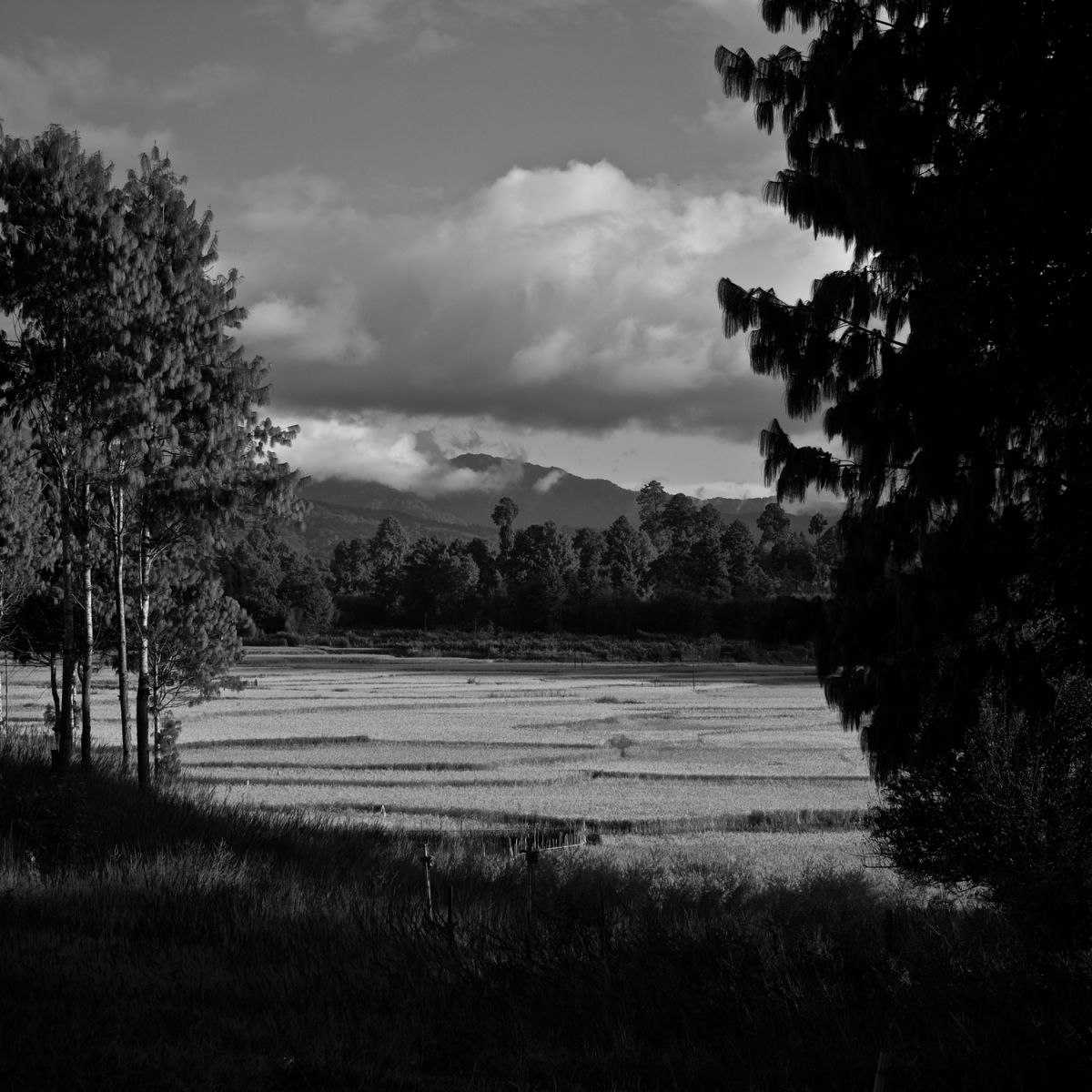
 Photo Courtesy: Shiv Ahuja
Photo Courtesy: Shiv Ahuja
Mark Arm knows what he’s talking about on ‘I Like It Small’
“Minimal production, low yields/
Intimate settings, living it up appeals.” - ‘I Like It Small’ by Mudhoney
In a scene where everyone speaks in superlatives (biggest, happiest, most amazeballs), people sometimes forget that small can be good too. And while the organisers of Ziro festival will probably wish for more attendees in coming years, I think most of us were perfectly happy to be at a music festival with the intimacy of a small pub gig. No long queues at the bar, no giggling hipsters taking selfies on their smartphones, no Dadar station rush from stage to stage as hordes of teenagers run to catch their favourite buzzband. In short, none of the countless little irritants that can make a big festival a daunting and exhausting experience. Instead, you got a few hundred tipsy people walking around with big dopey smiles on their faces as they tried out the local cuisine (the quaintly named bow-wow meat was a favourite on the first day), hung out with the local Apatani people, and shot the shit with friends old and new. The usual gig-clique mentality did not apply here, with hipster cynicism no match for the sheer beauty of the venue and the friendliness of everyone present (helped along by the cheap and wonderful rice beer). Instead, you had the sort of inclusive and incredibly amiable atmosphere that one rarely sees in Mumbai pub gigs, let alone a music festival. If you didn’t leave the festival having made a bunch of new friends, you were doing it wrong.

A beautiful valley and gallons of rice beer are the best cure for a bone jarring trip
Part of the reason the festival is so small, of course, is because getting there is a logistical nightmare. I know of more than a couple of people who had free tickets to the festival, but were scared away by the thought of so much travel. I had heard enough horror stories from last year, so I had nightmares of spending the first day of the festival stuck in a bus as rain and landslides blocked the roads to the valley. Thankfully, the weather gods were in a good mood, but 12 hours in a rickety bus and then another five hours in a taxi with nine other people (including a man with a rifle and a sack full of chickens) takes its toll. By the time we reached Ziro valley, we felt more like refugees than festival-goers. But boy, was it worth the trip! One look at what is easily the most beautiful venue in the country, and the weariness melted away. A couple of tokes and a few swigs of apong (the local rice beer) later, we were raring to go. This rejuvenating effect wasn’t a one-time deal either. Even on the third day, when everyone was exhausted and hungover, people were talking about how beautiful the place was or spending a blissful half an hour sitting in the gazebo and staring out at the paddy fields that surrounded us. The trip back though, was another story - a nerve-jangling, back-breaking journey with drivers who hadn’t slept in over 24 hours. But that’s a story for another time; I’m not reliving that experience without some Dutch courage in my system.

There’s much more to Ziro than the music
Of course, we were primarily there for the music. It’s a music festival after all. But Ziro Festival is as much about the valley and those who live in it, as it is about bands from New York or Mumbai. For those willing to wake up early, there were heritage walks, bird-watching treks, and cycling trips in the morning, and those who made the effort came back even more in love with the place. There were also a number of local tribal dance acts, including a tribal war dance that the emcee proclaimed was a ‘very manly tradition’. There was also some amazing local food and, at the risk of repeating myself, the eminently drinkable rice beer and rice wine (I think that’s the real secret of Ziro’s success). But more than that, there was a sense that this festival belonged to the locals, that unlike most destination festivals, the valley and its inhabitants weren’t just local flavour. The Apatani people there were incredibly friendly and fun, happy to tell us all we wanted to know about their culture and also happy to join us in our drunken revelry. Their friendliness added to making everyone feel welcome. As more than one Apatani person told me, “We’re all one happy family.” It’s obvious that the organisers have gone a long way to ensure that the locals feel like this festival belongs to them (for example, bamboo stages and bamboo drinking glasses which are not only wonderful, but minimise the damage to the environment). By the end of the festival, I was kicking myself for not staying longer so that I could find out more about the place and the Apatani tribe, their culture and their music.

Click here to read part II of our review of the Ziro Festival of Music 2013
Previous Article Odds and Ends - Bacardi NH7 Weekender 2013, Pune Odds and Ends - Bacardi NH7 Weekender 2013, Pune
|
Next Article Things I Learned at the Ziro Festival of Music 2013 - II Things I Learned at the Ziro Festival of Music 2013 - II
|


Leave a comment